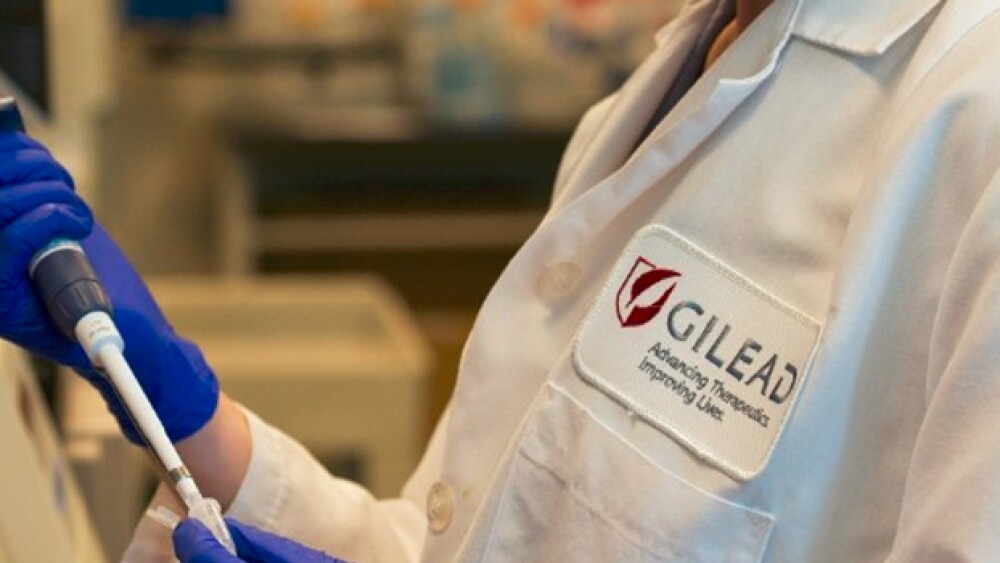Gilead Sciences reported earnings per share profits for the fourth quarter of $1.44 per share, below analysts’ expectations of $1.70.
Gilead Sciences reported earnings per share profits for the fourth quarter of $1.44 per share, below analysts’ expectations of $1.70. Revenue for the quarter was $5.8 billion, better than Wall Street’s $5.5 billion expectations, but down from $5.949 billion in the same quarter in 2017.
Total revenues for 2018 were $22.127 billion, down from $26.107 billion in 2017. HIV product sales were $4.1 billion for the quarter, up from $3.4 billion in the same period the year before. Chronic hepatitis C (HCV) product sales were $738 million for the quarter compared to $1.5 billion for the fourth quarter in 2017. HCV sales for 2018 were $3.7 billion compared to $9.1 billion in 2017. If ever a company was a victim of its own success, it’s how badly Gilead’s sales have dropped for HCV because the drugs are so successful in curing the disease.
The company’s CAR-T immuno-oncology product, Yescarta (axicabtagene ciloleucel) launched in the U.S. in October 2017 and brought in $81 million in the fourth quarter of 2018 and $264 million for the year. This has led some analysts to say that the company’s $11.9 billion investment in Kite and Yescarta is not paying off. The company, in its earnings call, indicated it is hopeful Yescarta sales will improve significantly this year.
Gilead is also planning on writing off its anti-B-cell maturation antigen (BCMA) CAR-T product for multiple myeloma. The company indicates that its R&D expenses increased largely due to an $820 million impairment charged related to in-process R&D for KITE-585, up-front collaboration expenses and higher investments to support Gilead’s business growth after the Kite acquisition. It was partially offset by its acquisition of Cell Design Labs in 2017.
R&D expenses for the quarter were $1.950 billion, up from $1.150 in the same quarter in 2017. R&D expenses for the year were $5.018 billion, up from $3.734 billion in 2017.
The company reported, as of December 31, 2018, $31.5 billion in cash, cash equivalents and marketable debt securities. The company in 2018 generated $8.4 billion in operating cash flow and repaid $6.3 billion in debt. It also paid cash dividends of $3 billion and utilized $2.9 billion on stock repurchases.
One ongoing peculiarity for Gilead is that its chief executive officer, Daniel O’Day, hasn’t shown up for work yet. An executive for Roche, O’Day was named the head of Gilead in December, but contractual commitments won’t allow him to take over the position until March 1.
Bloomberg notes, “Reinvigorating the company’s drug pipeline will be a crucial task for new chief executive officer Daniel O’Day…. Diversifying is critical as sales wane in Gilead’s blockbuster hepatitis C franchise, which helped turned the drugmaker into a leader in the field.”
Company shares dropped 4 percent in after-hours trading in response to the quarterly earnings report. At the beginning of the year, investors showed optimism about the company, but the yearly report, particularly the projection that the company expects its HCV franchise, which dropped 60 percent last year, to lose another $1 billion in 2019, has investors scattering.
George Budwell, writing for The Motley Fool, notes, “Worse still, Gilead’s $11.9 billion acquisition of Kite Pharma simply isn’t bridging the gap from a revenue-generation standpoint. Kite’s Yescarta cell therapy, after all, only saw its sales rise by a meager 8 percent in the fourth quarter compared with the prior three-month period. That’s not the kind of anemic growth trajectory you’d want to see from a novel cancer therapy early on its commercial launch as an investor—especially for a product projected to reach nearly $2 billion in peak sales and that helped to drive one of the richest buyouts in the history of biotech.”





